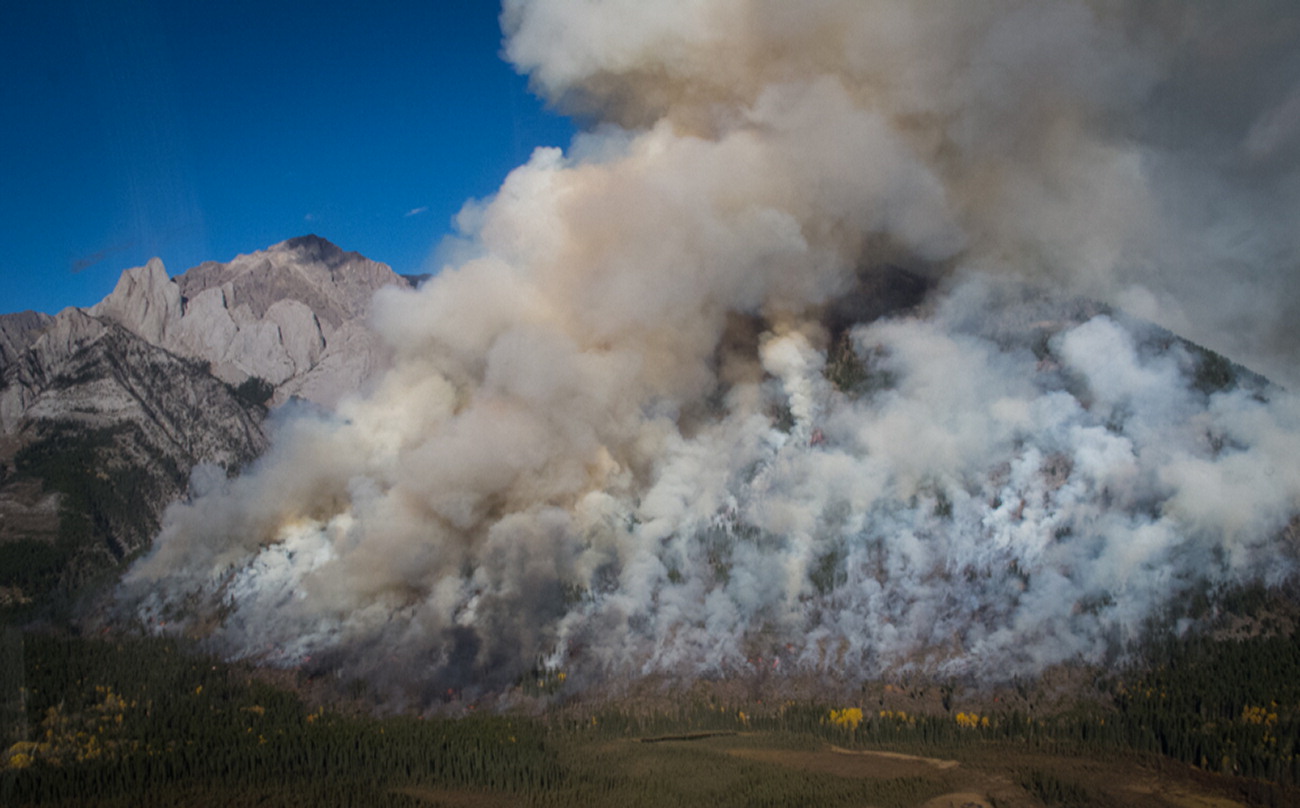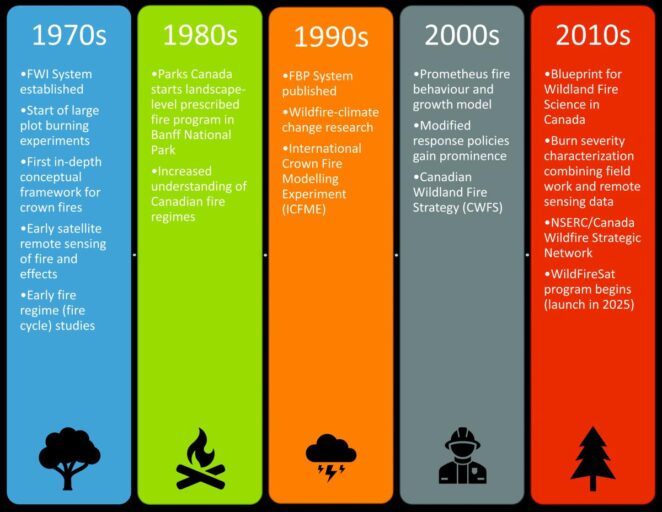Article /
Fifty Years of Wildland Fire Science in Canada

Summary
This resource was submitted by the Climate Risk Institute for theCanAdapt Climate Change Adaptation Community of Practice.
This article is an abridged version of the original text “Fifty years of wildland fire science in Canada” published in Canadian Journal of Forest Research, 51(2), under theCC BY 4.0 license in February 2021 © Coogan et al. Please note that references have been removed. For more detail, full references, and to quote text please use the paper available for download on the right.
Celebrating the 50th anniversary of the Canadian Journal of Forest Research, this report reflects on the progress accomplished in select areas of Canadian wildland fire science over the past half century. The article highlights key developments and contributions in the creation of the Canadian Forest Fire Danger Rating System; the relationships between wildland fire and weather, climate, and climate change; fire ecology; operational decision support; and wildland fire management. We also discuss the evolution of wildland fire management in Banff National Park as a case study. We conclude by discussing some possible directions in future Canadian wildlandfire research including the further evaluation offire severity measurements and effects; the efficacy of fuel management treatments; climate change effects and mitigation; further refinement of models pertaining tofire risk analysis,fire behaviour, andfire weather; and the integration of forest management and ecological restoration with wildlandfire risk reduction. Throughout the paper, we reference many contributions published in theCanadian Journal of Forest Research, which has been at the forefront of international wildlandfire science.

Citation
Sean C.P. Coogan,Lori D. Daniels,Den Boychuk,Philip J. Burton,Mike D. Flannigan,Sylvie Gauthier,Victor Kafka,Jane S. Park, andB. Mike Wotton. Fifty years of wildland fire science in Canada.Canadian Journal of Forest Research.51(2): 283-302.https://doi.org/10.1139/cjfr-2020-0314
- COPE Books for Children: Wildfires
- The Chiquitania fires: the role of water resources in forest restoration plans
- Assessment impacts and adaptation options to forest fires
- Future impacts of climate change on forests
